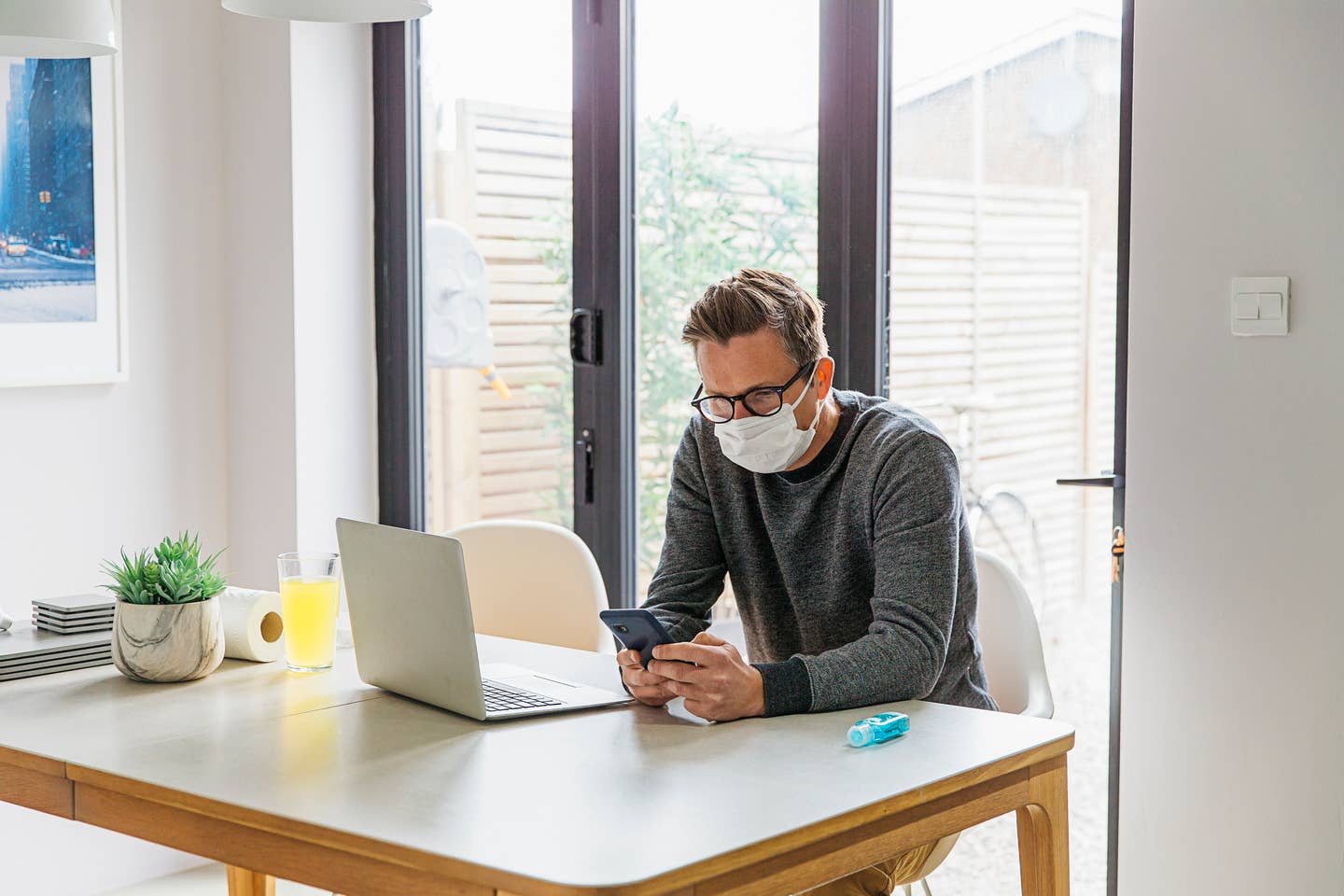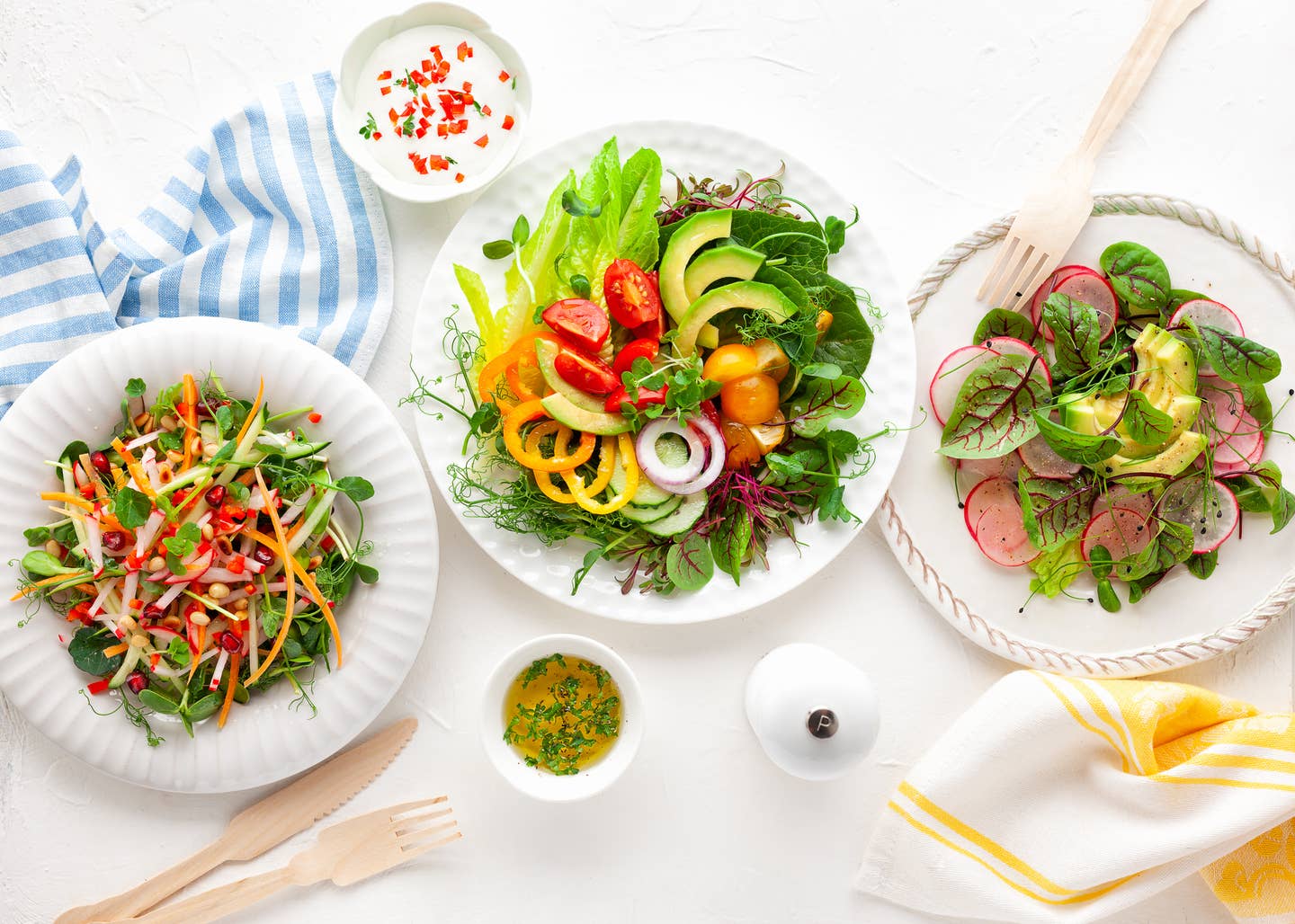
Intermittent Fasting Diet Helps Your Body Fight Off Infection, Here’s How
Dr. Jason Fung, co-author of Life in the Fasting Lane, wants to let people know that intermittent fasting is not only the fastest way to lose weight, burn fat, and reduce your body's susceptibility to diabetes and other ailments. Dr. Fung, a nephrologist (aka kidney specialist) who uses Intermittent Fasting to treat patients who need to lose dramatic amounts of weight for their overall health, tells The Beet that "fasting is part of a natural reaction to viral infections that is likely beneficial." Dr. Fung explains the science behind this, below. It's also why you lose your appetite when you first get sick with any virus, including COVID-19.
Defined as restricting your calorie intake to a window of time, for example, six or eight hours, and then fasting for either 14 or 16 or 18 hours (or longer) several days a week. Intermittent Fasting can help your body stay healthier by allowing it to use that period of not eating to focus on fighting off infection, viruses, and more, by stimulating your body's disease-fighting defenses. Here is how this works, according to Dr. Fung:
Q. You explained to The Beet how Intermittent Fasting helps people lose weight, by lowering their blood sugar and requiring the body to pull energy out of fat stores, in the absence of food intake. We tried it and it does seem to work! Once one gets used to controlling hunger cues, the body can learn that instead of being fed, it has to burn fat for fuel, and it can help someone lose weight naturally. But how can restricting one's eating to within a short window, and then not eating for say,14 or 16 hours, or longer, help fight disease?
A. When you get sick, the body's natural reaction is to stop eating or eat less. Everyone has experienced this. The science behind this natural instinct. The body wants to spend energy fighting off the virus and eating actually can get in the way of this process.
For viruses specifically, eating less stimulates a process called autophagy. You might not have heard of it before, but autophagy (which is the body's way of cleaning out damaged cells) plays a key role in helping the body fight viruses. Auto means self and phage means eat, so this is a way of your body eating cells that it doesn't need. It's like a cleaning crew that comes in and scrubs the entire place, while you're sleeping.
Autophagy activates lysosomes, or the body's version of scrubbing agents, which degrade viral particles so they no longer can make you sick and then presents them to the immune system to develop antibodies. All this works while you are fasting. When you eat during a specific window, the body has to process and metabolize that food, and the cleaning process hits pause.
Q. So would you tell anyone who is eating immune-boosting foods to stop? I like to pack my smoothies with blueberries, and then eat spinach for lunch, and more veggies at dinner. Is this a bad idea? I thought I was eating helpful foods to be my healthiest!
A. First of all, I don't want to tell you to eat less. But eat within a specific window of time, like six or eight hours, and then fast for the rest of the 24 hour day. So for some people, that means between your last bite at dinner (let's say around 8 p.m.) until the next day, if you are trying to not eat for 14 hours you would have breakfast at 10 a.m. If you want to go longer you would skip that meal and wait to eat at lunch. Or you could choose to eat one meal a day, so if that's breakfast or lunch, you skip dinner.
Some people fast for 24 or 36 hours at a time. I am not saying don't eat a healthy diet with plenty of fruits and vegetables, but choose to time your intake, to give your body a break from calories for a while, at least 12 to 14 hours and perhaps longer if you can. That way it has the chance to conduct its vital cell clean up.
Eating less is not inherently good or bad. It is simply part of a natural cycle: you eat and then you stop, and that's where the term "break-fast" comes from.
Q. How long does it take for autophagy to kick in? Is it after 12 hours? Longer?
A. Nobody knows really when autophagy starts, but my best guess is around 16 to 18 hours. Weight loss with [COVID-19 and] other viruses (influenza, etc.) is also common. It's always important to listen to your body. If it is telling you not to eat, then it's probably better to listen. If you feel hungry, then you should eat.
Q So is this what the expression: Feed a cold, starve a fever" comes from? I have heard this is not true and you need to eat to have the energy to fight off a virus. Plus when people become sick they obviously need to stay hydrated. What do you say to the old adage?
A. When you get sick, you naturally stop eating, and this process is so common in all animals (like dogs and cats) that the ancient Greeks termed it 'the fasting instinct'. But what's the science? As you eat less, blood glucose levels drop, which makes sense as protection against bacteria in the bloodstream, which uses that glucose for energy. The less you eat, the less bacteria is able to grow and replicate within your body.
Q. But what about viruses, such as COVID-19. If someone gets it should they fast?
A. They probably won't have much appetite. That's the body's way of harnessing its energy to fight the virus. Eating less helps to stimulate this process, and this is why when you’re sick, the body’s natural reaction is to eat less. Your body wants to clean house (speaking in lay terms). This is why people often lose weight when they get sick, since their body diverts energy to fight off the virus. and of course, staying hydrated by drinking lots of water, tea and fluids is important to keep your body able to recover if you do get sick.
But as I said above, the most important thing is to listen to your body. If it is telling you not to eat, then it's probably better to listen. If you feel hungry, then you should eat.
More From The Beet






